Yamaha Integrated Amplifiers
I got a chance to take a really close look at Yamaha’s new integrated amplifiers at the 2014 CEDIA Expo in Denver this year (they released four brand new models). These are true Hi-Fi components that combine that classic Yamaha “natural sound” with modern connectivity. And I do mean modern. These Yamaha integrated amplifiers provide both optical and TOSlink (optical) digital audio connections that can be used with an HDTV or Blu-ray Disc player. And the top model, the A-S801 even features a USB DAC function that supports high resolution audio—unheard of in a product costing less than $1000.
The new models are the A-S801, A-S701, A-S501 and A-S301. The differences between the models are easy to distinguish, and we’ll go through them in detail here. Before discussing the differences, let’s look at what’s the same. Each of the integrated amplifiers uses Yamaha’s proprietary ToP-ART (Total Purity Audio Reproduction Technology) amplification design that places the right and left channels symmetrically for better channel separation and a lower noise floor. All four models have an anti-resonance base.
Yamaha A-S301 Integrated Amplifier
The Yamaha A-S301 Integrated Amp includes an 60W per channel stereo amplifier that rounds out the entry-level of the new line-up. In terms of connections it is absolutely identical to the other integrated amplifiers with two exceptions. First, the next three models utilize gold-plated connections. Second, the A-S801 includes a USB DAC function. Aside from that, the step-ups across all of the Yamaha integrated amplifiers are power-based.
Yamaha A-S501 Integrated Amplifier
The Yamaha A-S501 integrated amp brings the power up to 85W per channel and includes gold-plated connectors for the CD and phono inputs as well as the speaker terminals. This amp also uses a solid center bar to further reduce chassis vibration as well as, according to Yamaha, lower extraneous noise and distortion.
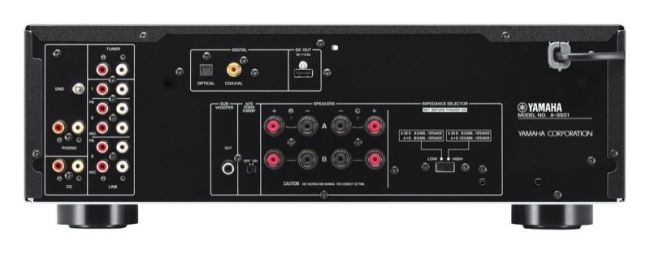
The Yamaha A-S501 integrated amplifier adds gold-plated connectors and a chassis bar to dampen vibrations and lower noise.
Yamaha A-S701 Integrated Amplifier
The 100W per channel Yamaha A-S701 again ups the ante and adds CD Direct Amplification, a feature that maximizes the signal-to-noise ratio of CD sources by enabling the audio signal to travel the shortest possible route. It essentially bypasses the buffer amp and the tone, loudness and balance controls. The continuously variable Loudness Control lets you listen at low volume levels without losing the perceived bass and upper detail present at higher volumes.
All of these new Yamaha integrated amplifiers are compatible with the company’s optional YBA-11 Bluetooth wireless adapter, letting you stream music from just about any smart phone, tablet, or laptop computer.
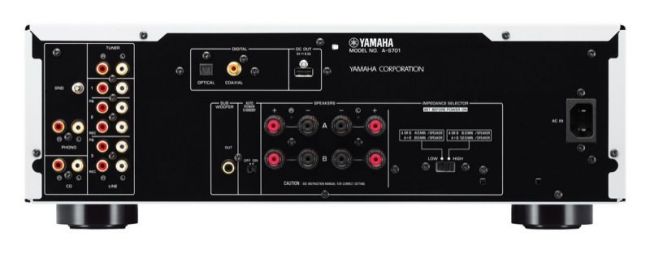
Note the gold-plated RCA terminals on all inputs of the A-S701 integrated amplifier (also present on the A-S801).
Yamaha A-S801 Integrated Amplifier
The flagship Yamaha A-S801 integrated amp lets you play back high-resolution music files using the amp as an external DAC. The A-S801 has a built-in USB DAC function that uses the high performance ESS Technology SABRE32 Premier Stereo DAC. On top of that, the top-of-the-line amp is built with a double-bottom chassis to further reduce vibration and distortion.
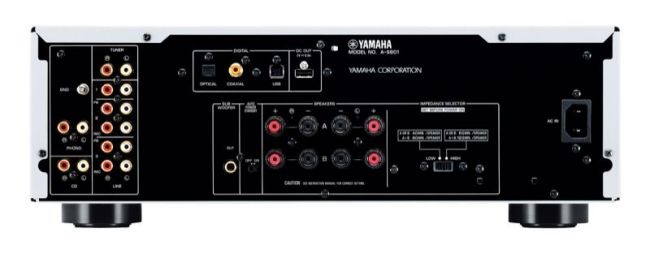
The Yamaha A-S801 adds the coveted USB DAC feature that allows this integrated amplifier to be used as an external sound device for a PC or Mac computer.
While all models above the A-S301 include (mostly) gold-plated RCA terminals, the A-S701 and A-S801 actually have gold plated terminals for all input RCA connections in addition to the speaker terminals.
[top-seller category_id=’205′ product_count=’4′ title=’Top Selling Yamaha Amplifiers and Separates’]

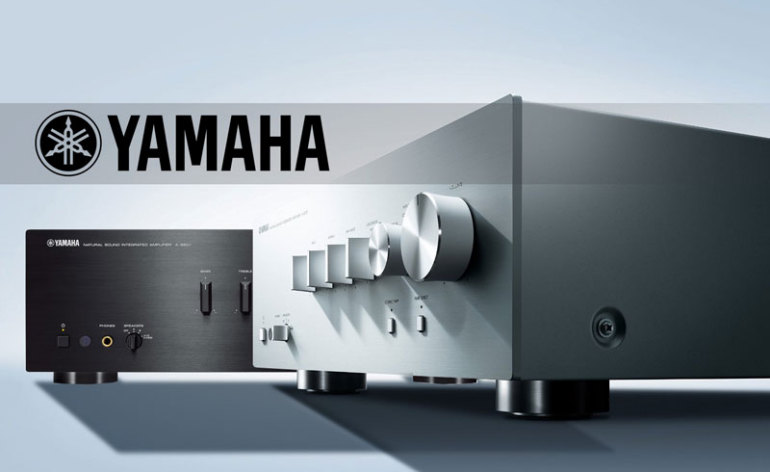
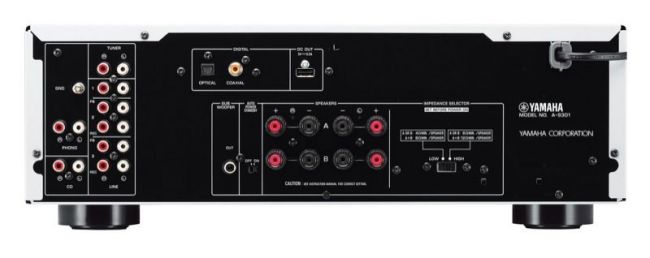
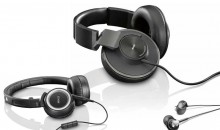
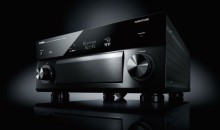
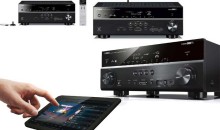
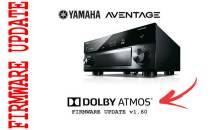

Integrated…
Integrated…
A/V control unit/preamp and power amps. Lots of them.